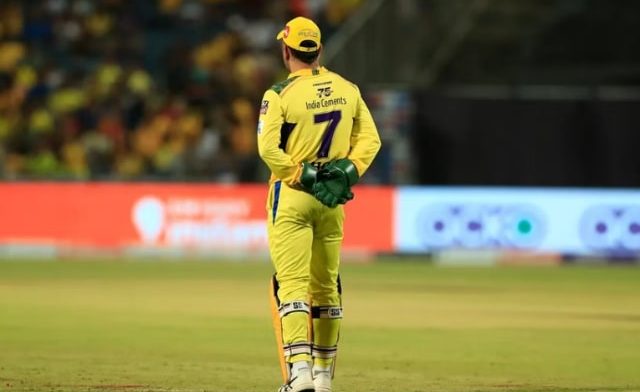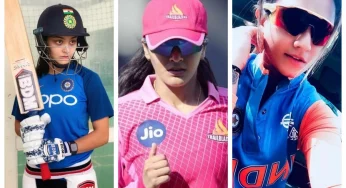Behind the Scenes: The Strategy of Building a Successful IPL Fantasy Team
Published on: Mar 13, 2024 5:34 pm IST|Updated on: Mar 13, 2024 5:34 pm IST

Fantasy cricket within the context of the IPL transforms you into a virtual team manager, offering a unique and engaging perspective on the game. In this role, you create a virtual squad of actual IPL players.
Fantasy platforms assign these players a virtual price, and you must select your team wisely while adhering to a budget constraint. This requires strategic thinking and an eye for value as you balance the cost of star players against the potential of lesser-known, cheaper options.
The performance of these players in real-life IPL matches directly affects your fantasy team’s score. Every run scored, wicket taken, or catch made by a player in your team adds points to your total. This point system transforms every match into a more personal and engaging experience as you cheer on players from your fantasy team.
However, building a winning team requires more than just picking the best players. Successful fantasy managers consider various factors, including player form, the combination of teams in actual matches, and even the pitch conditions. These elements can significantly impact a player’s performance in real matches and, by extension, in your fantasy team.
The competitive aspect of fantasy cricket adds another layer of excitement to the IPL. You’re not just competing against the system but also against other fantasy managers. The aim is to accumulate the most points throughout the tournament or within specific matches, with leaderboards providing a constant update on how your team compares to others..
Understanding Player Performance and Match Conditions
The first step in assembling a successful IPL fantasy team involves a deep dive into the individual performances of players and the specific conditions of each match. This dual focus allows you to make informed decisions beyond surface-level statistics.
Player Performance: Evaluating a player’s current form is crucial. Look beyond their reputation or past achievements and focus on recent performances, including runs scored, wickets taken, strike rates, and economy rates.
Pay attention to how players perform under different circumstances, such as against specific teams or in various stadiums. Injuries and playing conditions can significantly affect a player’s form, so staying updated is essential.
Match Conditions: The conditions under which a game is played can significantly impact player performance. Consider the pitch and weather conditions. For instance, dry, dusty pitches in India often favour spin bowlers and batsmen accustomed to playing spin well. Conversely, overcast conditions can assist fast bowlers.
The venue history is also a key factor; some players may have a track record of performing exceptionally well or poorly at certain grounds. Before selecting your players, check the weather forecast and pitch report for each match to adjust your team accordingly.
By blending an in-depth analysis of player performances with a thorough understanding of match conditions, you can gain a competitive edge in fantasy cricket. This approach lets you anticipate which players will likely excel in specific scenarios, helping you build a high-scoring, balanced fantasy team tailored to each match’s unique context. Remember, knowledge and strategy are as important as intuition in fantasy cricket.
Balancing the Team Composition and Budget Management
Creating a successful IPL fantasy team isn’t just about picking the top players; it’s about finding the right balance within your team and managing your virtual budget effectively. This delicate balancing act involves combining star players with hidden gems and ensuring you get the best value for your virtual money.
Just as in fantasy cricket, where strategy and balance are key, selecting the right platforms for betting can significantly enhance your gaming experience. If you’re looking to place bets alongside managing your fantasy team, consider exploring the top real money online betting apps in India, to find the best possible option that aligns with your needs and enhances your overall gaming and betting experience.
Team Composition: A well-balanced team consists of a mix of batsmen, bowlers, all-rounders, and at least one wicketkeeper. While it may be tempting to load your team with top-order batsmen or leading wicket-takers, such a strategy can backfire if those players perform differently than expected. Instead, aim for a balance. Include players who are likely to bat and bowl or those who consistently score points through fielding. All-rounders, who contribute with both bat and ball, can be particularly valuable in fantasy cricket as they have more opportunities to score points.
Budget Management: Each player in fantasy cricket is assigned a virtual price, and your challenge is to build the best possible team without exceeding your budget limit. High-profile players typically cost more, so spending less on a few big names can restrict your ability to pick a well-rounded team. To manage your budget effectively, identify value picks – players priced lower than their potential output suggests. These players often go under the radar but can provide the points needed at a fraction of the cost.
An effective strategy is to start by selecting these value players first, then using the remaining budget to fill the rest of your squad with star players. This approach can help ensure you have sufficient funds to fill crucial positions. Additionally, keeping an eye on player updates and making last-minute changes can free up a budget or allow you to replace underperforming players with those in better form or with more favourable matchups.
In conclusion, balancing your team composition and managing your budget are intertwined strategies that require foresight, flexibility, and a good understanding of cricket dynamics. By mastering these aspects, you can construct a competitive and well-rounded IPL fantasy team, maximising your chances of climbing the leaderboard and achieving fantasy cricket success.
















